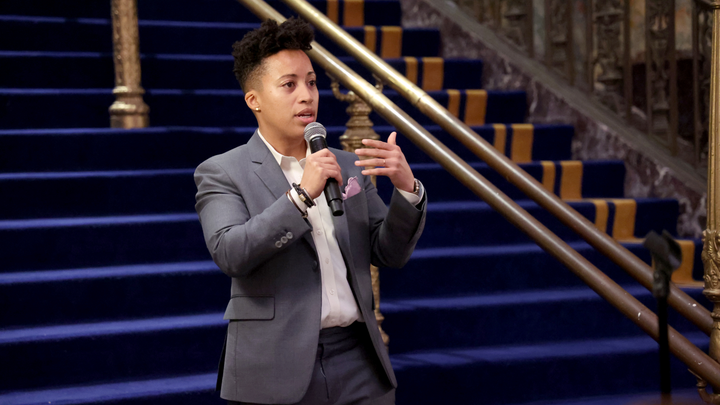NYC Council Approves Landmark Slavery Reparations Legislation
 Lucia Vinuela
Lucia Vinuela
NYC Council Approves Landmark Slavery Reparations Legislation
New York City is set to become the largest U.S. city to implement a reparations program following a decisive vote by the City Council. On Thursday, the Council passed two bills—sponsored by Councilmembers Crystal Hudson and Farah Louis—to create a Truth, Healing, and Reconciliation Commission and a reparations task force. The new legislation will take effect immediately.
The Council's press release highlights that the legislation aims to address the historical legacy of slavery and racial injustices in New York City, a region with significant slave ownership during the 1700s. The measures will include the establishment of a Truth, Healing, and Reconciliation process, a reparations study, informational signage at the city's first slave market, and a task force to explore the development of a "freedom trail" that will commemorate abolitionist and Underground Railroad sites.
The commission will focus on documenting the history and ongoing impacts of slavery in the city, providing acknowledgment and protection for affected communities, and recommending reforms to prevent the continuation of injustices rooted in the legacy of slavery.
Councilmembers Hudson and Louis, who championed the bills, expressed their hopes that the legislation will drive substantial change in the city.
Hudson emphasized that the legislation aims to "identify and rectify racist, anti-Black policies entrenched in our city's institutions, offering concrete solutions to address these foundational issues."
Louis described the legislation as a "crucial step toward achieving justice and equity."
Hudson, in an interview with Fox News Digital, stressed that the effects of slavery are still felt today and that the legislation represents a significant advance for New York City. She noted that the enduring impacts of slavery are evident in various systemic issues, including the prison-industrial complex, predatory lending, redlining, and educational inequality.
"When I first ran for office in 2021, I proposed a Black Agenda for New York City, which included the establishment of a Truth, Healing, and Reconciliation process to confront and address the city’s historical injustices against Black New Yorkers," Hudson said. "As the nation’s largest city with the biggest municipal budget, our approach to truth, healing, and reconciliation is poised to be impactful. It will work to uncover and correct the racist, anti-Black policies at the core of our city's institutions."
However, the legislation has faced opposition from some councilmembers. Minority Leader Joseph Borelli, one of the eight councilmembers who voted against the bills, expressed his discontent. "I’ll move before I’ll pay," Borelli told the New York Post. "If they can introduce me to one New Yorker who owned a slave, I’d consider it. But until then, I am not willing to pay for a harm I did not cause or condone."
Subscribe to my newsletter
Read articles from Lucia Vinuela directly inside your inbox. Subscribe to the newsletter, and don't miss out.
Written by

Lucia Vinuela
Lucia Vinuela
Produce high-quality materials that resonate with audiences and drive engagement. Passionate about storytelling and innovation, blends creativity with strategy to deliver impactful content that informs, entertains, and inspires.